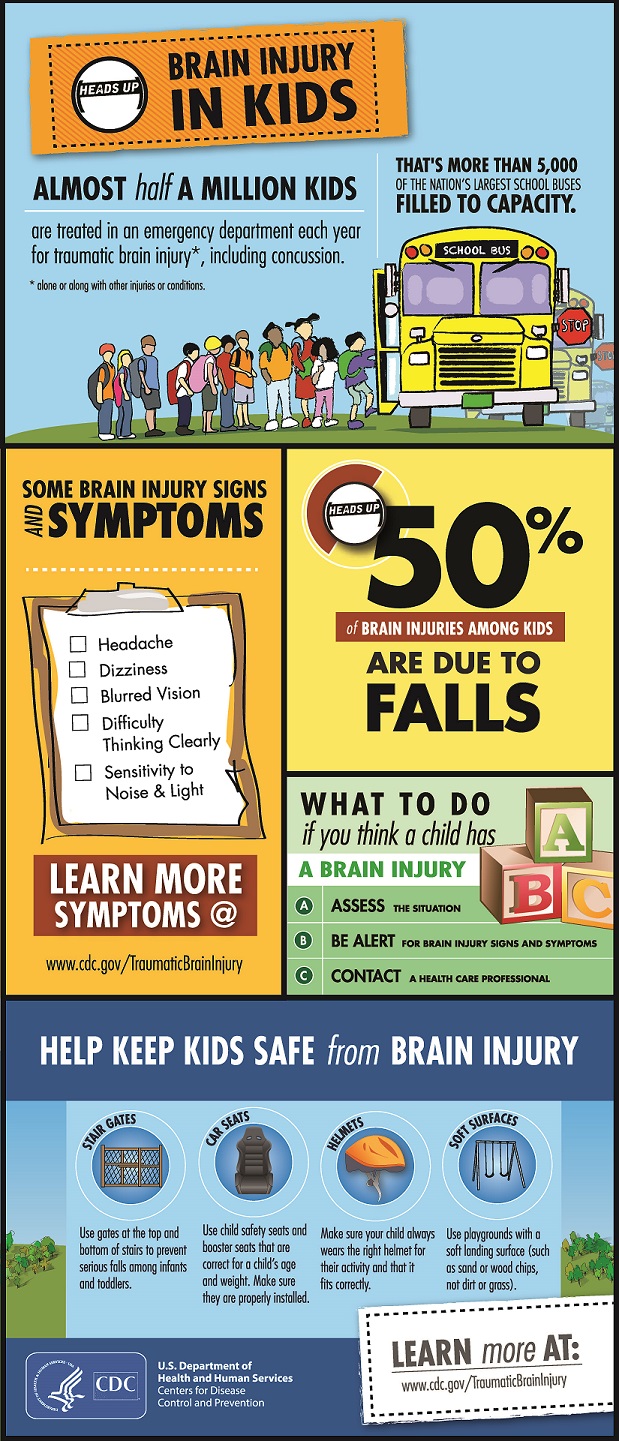Traumatic Brain Injury (TBI) and Concussions
A traumatic brain injury, or TBI, is an injury that affects how the brain works. It may be caused by bump, blow, or jolt to the head that causes the brain to move quickly back and forth. Other traumatic brain injuries result from an external object penetrating the head. A person with a possible TBI should be seen by a healthcare provider. Your healthcare provider may have treatment to help speed your recovery.
The most common traumatic brain injury is a concussion. Concussions can cause a chemical change in the brain or damage and stretch the cells of the brain. Symptoms from a concussion can affect how a person thinks, learns, feels, acts, and sleeps. The different symptoms of a concussion can change during a person’s recovery.
Health care professionals sometimes describe a concussion as a "mild" brain injury because concussions are usually not life-threatening; however, concussions can cause serious long-term complications and may even result in death. It is important to remember that even a "ding," "getting your bell rung," or what seems to be mild bump or blow to the head can be serious. It is best to refer an athlete to a health care professional if a concussion is suspected.
